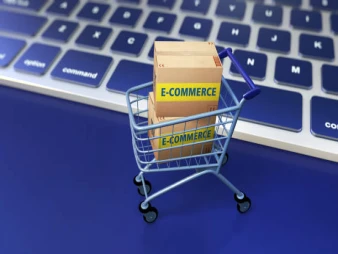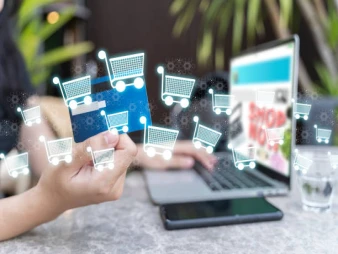Free support 24/7
Free support 24/7

Email is considered one of the most important means of formal communication in the modern era. Writing formal, professional emails reflects a person's skills and respect for the recipients, whether they are co-workers, clients, or official bodies. In this article, I will explain in detail how to write a formal and professional email.
1. Start with a clear subject: When writing an email, you should start with a clear subject that summarizes the content of the message. For example, “Inquiry about an upcoming meeting” or “Offer of potential cooperation.”
2. Use the appropriate salutation: After the subject, the letter should begin with an appropriate salutation, such as “Dear Mr./Mrs. [recipient’s name]” or “Hello.”
3. Start with the introduction: After the salutation, you should introduce yourself and your company if you represent a company or organization. You must state your name, position and contact information.
4. Explain the purpose: After submitting, you should explain the purpose of the email clearly and concisely. What information or requests would you like to share with the recipient?
5. Use formal language: When writing a formal email, you should use formal and professional language. Avoid using inappropriate language or inappropriate phrases.
6. Organize the text: Divide the email into separate paragraphs to make it easier to read. Use paragraphs to organize and tabulate text to increase clarity of information.
7. Clear requests: If you have specific requests from the recipient, state them clearly in the email. For example, "Please send us your performance report before the end of the month."
8. Closing the email: Before concluding the message, thank the recipient for their time and potential cooperation. Then, use an appropriate closing salutation such as “Sincerely” or “With all due respect.”
9. Signature: You should place a signature that includes your full name, title, and contact information at the end of the email.
10. Review and Fix: Before sending the email, be sure to review it for typos or other errors.
11. Attachments (if applicable): If you want to attach documents or files to the email, provide links or clearly mention the attachment files.
12. Follow-up: If you have expectations for the recipient after receiving the email, state that clearly in the message and provide the necessary contact information for a follow-up.
13. Pay attention to timing: When sending an email, try to take into account the appropriate timing for the recipient. There may be optimal times to send your message depending on their work schedule.
14. Respond to email quickly: If you receive a response from the recipient, respond as quickly as possible. This shows your respect for other people's time and contributes to building positive relationships.
15. Save a backup copy: Do not forget to save a backup copy of your official email in a safe place. You may need to refer to it in the future.
16. Respect privacy: Always remember to respect the privacy of the information and data you share in your official email. Some information may be sensitive and require additional protection.
17. Consider security: When sending sensitive or important information, you may need to use email encryption or other security methods to ensure the confidentiality of the content.
18. Take advantage of spelling and grammar techniques: Use editing software to check spelling and grammar before sending an email. This will help avoid grammatical errors.
19. Pay attention to details: Small details may be very important in some cases, so check the accuracy and completeness of the information you provide in the email.
20. Flexibility and responsiveness to change: Remember that email can evolve over time. Be flexible and respond to any changes in formal email communication requirements.
21. Follow-up after sending: Once a formal email has been sent, there may be a need to follow up on the message if it needs a response or if you expect certain actions to be performed based on its content. You can send a polite reminder if necessary.
22. Avoid unsolicited mass email: Avoid sending unsolicited mass email to large groups of people unless necessary. Respect other people's time and provide content that serves their interests.
23. Comply with Email Laws: Make sure to comply with local and international email laws, such as the CAN-SPAM Rules, which set requirements and rules regarding official email.
24. Learn from past experiences: Take advantage of past email experiences and learn from them. Analyzing successes and improvements can help you improve your email writing in the future.
25. Maintain professionalism and respect: While you follow all of these tips for writing a formal and professional email, you should always maintain professionalism and respect in your dealings with others. Email reflects your personality and reputation, so be accurate and respectful in all email interactions.
26. Monitor your inbox regularly: Make sure to monitor your inbox regularly. You may need to respond to new messages quickly or handle important requirements as quickly as possible.
27. Prioritize: If there are multiple messages in your inbox, prioritize and reply to the important ones first. This helps in managing time effectively.
28. Handle friendship with caution: When using email for personal correspondence, avoid discussing highly sensitive or private information. Maintain privacy boundaries and remember that email is not always 100% secure.
29. Avoid an emotional response: If you receive an email that makes you emotional or nervous, provide a calm and respectful response. Avoid responding in an emotional or hostile way.
30. Keep a copy of letters: Mailings can be important in the future for documentary or legal purposes. Keep a copy of
Important messages are stored in a special folder with the appropriate label.
31. Keep up with technological changes: Email and its technologies are constantly changing, so be prepared to use technological improvements and new tools that make the email process more effective.
32. Learn from previous interactions: You may have the opportunity to learn from previous email interactions and improve your communication style and techniques.
33. Stay away from rumors and rumours: Avoid spreading rumors or unconfirmed information via email. Be accurate in conveying information and check its authenticity before sharing it.
34. Pay attention to email formatting: Pay attention to email formatting to make it easy to read and respond. Use templates if appropriate and avoid adding unnecessary or annoying files.
35. Continuous evaluation: Continue to constantly evaluate and improve your writing style and email interaction. Learn from experiences and mistakes and expand your capabilities in this field.
36. Collaborate with the team: If you work in a team or group, be ready to collaborate and communicate well with team members via email. Sometimes you may need to coordinate efforts and exchange information effectively.
37. Dedicate yourself to achieving goals: When writing a formal email for important purposes, make sure that you are committed to achieving the goals that you put in the message. Take the necessary steps to implement the required actions.
38. Communicating with Diverse Audiences: Remember that you may be communicating with diverse audiences of varying levels and goals. Try to adapt your style and language to suit the audience you are communicating with.
39. Stay away from abuse and verbal violence: Avoid using offensive or offensive language in emails. Maintaining respect and professionalism is key.
40. Successful time management: Learn how to manage your time effectively by setting specific times to check email and respond to messages. Organization and good time management can be key to increasing your productivity.
41. Direct attention to attachments: If you have attachments in the email, make sure you direct the recipient's attention to them clearly and clearly. Sometimes you may need to include instructions on how to use the attachments.
42. Adhere to company policies: If you work for a company or organization, make sure you adhere to the organization's email policies. There may be specific rules and procedures you must follow.
43. Stay away from temptations: Avoid being tempted by temptations such as sending junk e-mail while at work or on vacation. Respect other people's time and use email for important and appropriate purposes.
44. Learn from successes and failures: Continue to evaluate your performance and learn from successes and mistakes. Make a plan to develop your email writing and communication skills.
45. Consider cultural context: If you communicate with people from different cultures, be sensitive to cultural differences and different professional directives in email.
46. Invest in developing your skills: Don't stop developing your email writing and management skills. You may need training courses or resources to improve your performance.
47. Professionalism in responding to incoming messages: When you receive messages, respond quickly and professionally. Your message may be to respond to inquiries or provide feedback, so be courteous and precise in your responses.
48. Follow ethical guidelines: Always remember your ethical responsibilities when writing email and interacting with others. Respect personal and professional ethics in your actions.
49. Define responsibilities and deadlines: If you and the recipient agree on certain actions or tasks, be sure to clearly define responsibilities and deadlines in the email.
50. Remain professional at all times: Ultimately, you should always remain professional in every aspect of using email. Paying attention to ethics and professionalism can help you build a good reputation and succeed in various areas of your life.
These tips represent comprehensive guidelines for effective email writing and interaction. Always remember that email is a powerful means of communication, and by using it correctly and professionally, you can have a significant and positive impact in your personal and professional life.

صفحة المنتج هي أهم نقطة قرار داخل المتجر الإلكتروني يا إنها تقنع العميل يكمل الشراء يا إنها تضيّعه في تفاصيل مالها داعي

دخول السوق الأوروبي صار أسهل من قبل بفضل تطور أدوات الترجمة والتقنيات اللوجستية الذكية
You can create your store easily